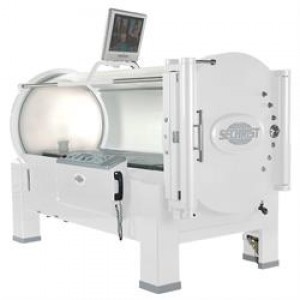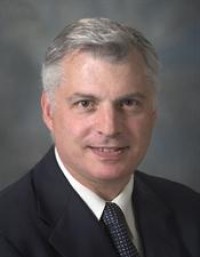URMC Expands Wound Care Program with New Tools for Healing Center Includes Hyperbaric Chambers for Oxygen Therapy
URMC Expands Wound Care Program with New Tools for Healing Center Includes Hyperbaric Chambers for Oxygen Therapy
Advanced treatments for patients in need of wound care will be available beginning March 6 at the new Strong Wound Healing Center, located at 160 Sawgrass Drive, Suite 130, off Westfall Road in Rochester. Strong Memorial Hospital of the University of Rochester Medical Center (URMC) partnered with the world’s largest wound care management company, Diversified Clinical Services, to expand and relocate its wound center from the hospital’s ambulatory care facility to the new site.

The new Strong Wound Healing Center has two hyperbaric chambers for oxygen therapy.
The Strong Wound Healing Center offers expert care for wound healing including hyperbaric medicine as an advanced therapy for specific conditions. It has two hyperbaric chambers, six exam rooms for patient privacy and comfort, free parking, and easy access by bus. As demand for hyperbaric therapy grows, the facility has space to add additional chambers.
“While we have worked for years to provide wound healing services to those in need, our new center affords us the ability to offer more comprehensive wound care to better manage chronic or non-healing wounds caused by diabetes, circulatory problems, and other conditions,” said Howard N. Langstein, M.D., medical director for the Strong Wound Healing Center and chief of Plastic and Reconstructive Surgery for URMC.

Howard N. Langstein, M.D.
Demand for wound healing services is surging, according to Langstein. Non-healing wounds occur most frequently in the elderly and in people with diabetes – populations that are on the rise – and are associated with inadequate circulation, poorly functioning veins, and immobility.
Of those in the U.S. with diabetes, 6.5 million are estimated to suffer with chronic or non-healing wounds that can have a major impact on patients’ quality of life. If not aggressively treated, these wounds can lead to amputations, often triggering a downward spiral that leads to disability or death.
“Many lower-extremity amputations can be prevented through an interdisciplinary approach to treatment involving a variety of therapies and techniques, including debridement, dressing selection, special shoes, and patient education,” Langstein said. “When wounds persist, a specialized and holistic approach is required for healing,”
Treatment might include Hyperbaric Oxygen Therapy (HBOT), a safe, evidence-based treatment proven to speed the healing process in certain types of wounds. By quickly increasing the concentration of oxygen in the bloodstream, HBOT helps heal the wound from the inside out. It can help reduce swelling, fight infection, and build new blood vessels, ultimately producing healthy tissue. It is also effective in treating osteomyelitis, compromised skin grafts and flaps, and late-stage radiation injury including cystitis and proctitis. HBOT is used in connection with treatment for problematic, non-healing wounds that meet specific criteria. About 10 percent of cases cared for at the center will meet those criteria.
“The Strong Wound Healing Center will be an important resource to meet a significant community need,” Langstein said. “We’ve partnered with the leader in wound care to offer evidence-based care to patients through a system with an excellent track record for good outcomes, including an 88 percent healing rate and extremely high patient satisfaction.”
“We are devoted to an interdisciplinary approach to healing problem wounds and helping our patients reclaim the quality of their lives,” said Center Director Maura Snyder, M.H.A.
In addition to Langstein, on-site medical direction will be provided by board-certified plastic surgeons Derek E. Bell, M.D., Jose G. Christiano, M.D., and certified wound specialist nurse practitioner Lisa Wallin. They will collaborate with primary care physicians for continuity of care. Staff members specialty trained in advanced wound healing services will work with patients to meet their unique needs and achieve optimal healing.
The Center will be open Monday through Friday, 8 a.m. to 4:30 p.m. For information please call (585) 262-9100 (beginning March 6).
###
* The above story is adapted from materials provided by University of Rochester Medical Center
![]() ______________________________________________________________________
______________________________________________________________________



















